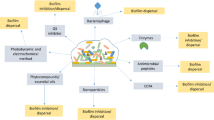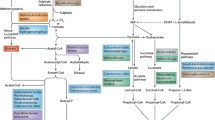Abstract
The present study was undertaken to isolate bifidobacterial probiotics and characterize the biodiversity of mucosal bacteria in the human distal gut through 16S rRNA amplicon sequencing. Bifidobacterial strains obtained by selective culturing were investigated for biofilms and probiotic characteristics. Both culture-dependent and culture-independent approaches revealed substantial microbial diversity. Bifidobacterium strains yielded robust biofilms with predominantly exopolysaccharides and eDNA matrix. Microscopy revealed species-dependent spatial arrangement of microcolonies. Following probiotic profiling and safety assessment, the inter- and intra-specific interactions in in dual strain bifidobacterial biofilms were studied. As a species, only strains of B. bifidum exhibited exclusively inductive type of interactions whereas in other species, the interactions were more varied. On the other hand, in dual species biofilms, a preponderance of inductive interactions was evident between B. adolescentis, B. thermophilum, B. bifidum, and B. longum. The strong biofilm-formers also diminished pathogenic biofilm viability, and some were proficient in cholesterol removal in vitro. None of the strains exhibited harmful enzymatic activities associated with disease pathology. Interaction between biofilm-forming bifidobacterial strains provides an understanding of their functionality and persistence in the human host, and food or medicine. Their anti-pathogenic activity represents a therapeutic strategy against drug-resistant pathogenic biofilms.





Similar content being viewed by others
Data availability
All data generated or analyzed during this study are included in this published article (and its supplementary information files). The genome datasets generated and/or analyzed during the current study are available online in the [National Center for Biotechnology Information (NCBI)] repository and accession number(s) could be found in the article/supplementary material.
References
Achi SC, Halami PM (2019) In vitro comparative analysis of probiotic and functional attributes of indigenous isolates of bifidobacteria. Curr Microbiol 76:304–311. https://doi.org/10.1007/s00284-018-1615-9
Asan-Ozusaglam M, Gunyakti A (2019) Lactobacillus fermentum strains from human breast milk with probiotic properties and cholesterol-lowering effects. Food Sci Biotechnol 28:501–509. https://doi.org/10.1007/s10068-018-0494-y
Awasti N et al (2016) Probiotic and functional characterization of bifidobacteria of Indian human origin. J Appl Microbiol 120:1021–1032. https://doi.org/10.1111/jam.13086
Barzegari A, Kheyrolahzadeh K, Khatibi SMH, Sharifi S, Memar MY, Vahed SZ (2020) The battle of probiotics and their derivatives against biofilms. Infect Drug Resist 13:659–672. https://doi.org/10.2147/IDR.S232982
Bover-Cid S, Holzapfel WH (1999) Improved screening procedure for biogenic amine production by lactic acid bacteria. Int J Food Microbiol 53:33–41. https://doi.org/10.1016/S0168-1605(99)00152-X
Collado MC, Sanz Y (2007) Induction of acid resistance in Bifidobacterium: A mechanism for improving desirable traits of potentially probiotic strains. J Appl Microbiol 103:1147–1157. https://doi.org/10.1111/j.1365-2672.2007.03342.x
Cui X, Shi Y, Gu S, Yan X, Chen H, Ge J (2018) Antibacterial and antibiofilm activity of lactic acid bacteria isolated from traditional artisanal milk cheese from Northeast China against enteropathogenic bacteria. Probiotics Antimicrob Proteins 10:601–610. https://doi.org/10.1007/s12602-017-9364-9
D’Argenio V, Salvatore F (2015) The role of the gut microbiome in the healthy adult status. Clin Chim Acta 451:97–102. https://doi.org/10.1016/j.cca.2015.01.003
De Weirdt R, Van de Wiele T (2015) Micromanagement in the gut: Microenvironmental factors govern colon mucosal biofilm structure and functionality. NPJ Biofilms Microbiomes 1:1–6. https://doi.org/10.1038/npjbiofilms.2015.26
Dieterich W, Schink M, Zopf Y (2018) Microbiota in the gastrointestinal tract. Med Sci 6:1–15. https://doi.org/10.3390/medsci6040116
Duranti S et al (2016) Elucidating the gut microbiome of ulcerative colitis: Bifidobacteria as novel microbial biomarkers. FEMS Microbiol Ecol 92:1–12. https://doi.org/10.1093/femsec/fiw191
Duranti S et al (2017) Prevalence of antibiotic resistance genes among human gut-derived bifidobacteria. Appl Environ Microbiol 83:1–14. https://doi.org/10.1128/AEM.02894-16
FEEDAP (2018) Guidance on the characterisation of microorganisms used as feed additives or as production organisms. EFSA J 16:e05206. https://doi.org/10.2903/j.efsa.2012.2539
Gabrilska RA, Rumbaugh KP (2015) Biofilm models of polymicrobial infection. Future Microbiol 10:1997–2015. https://doi.org/10.2217/fmb.15.109
García-Ruiz A, de Llano DG, Esteban-Fernández A, Requena T, Bartolomé B, Moreno-Arribas MV (2014) Assessment of probiotic properties in lactic acid bacteria isolated from wine. Food Microbiol 44:220–225. https://doi.org/10.1016/j.fm.2014.06.015
Hassan A et al (2019) Updates in understanding the hypocholesterolemia effect of probiotics on atherosclerosis. Appl Microbiol Biotechnol 103:5993–6006. https://doi.org/10.1007/s00253-019-09927-4
Hussain A, Ansari A, Ahmad R (2020) Microbial biofilms: Human mucosa and intestinal microbiota. In: Yadav MK, Bhim Pratap Singh (ed) New and future developments in microbial biotechnology and bioengineering: Microbial biofilms. Elsevier, Amsterdam, NL, pp 47–60
International Organization for Standardization (2010) Milk and milk products—determination of the minimal inhibitory concentration (MIC) of antibiotics applicable to bifidobacteria and non-enterococcal lactic acid bacteria (LAB). International Organization for Standardization, Geneva, p 31
Kassinger SJ, Van Hoek ML (2020) Biofilm architecture: an emerging synthetic biology target. Synth Syst Biotechnol 5:1–10. https://doi.org/10.1016/j.synbio.2020.01.001
Kelly SM et al (2020) Bifidobacterial biofilm formation is a multifactorial adaptive phenomenon in response to bile exposure. Sci Rep 10:1–14. https://doi.org/10.1038/s41598-020-68179-9
Kim M et al (2018) Safety evaluations of Bifidobacterium bifidum BGN4 and Bifidobacterium longum BORI. Int J Mol Sci 19:1–22. https://doi.org/10.3390/ijms19051422
Koshy-Chenthittayil S, Archambault L, Senthilkumar D, Laubenbacher R, Mendes P, Dongari-Bagtzoglou A (2021) Agent based models of polymicrobial biofilms and the microbiome—A review. Microorganisms 9:1–23. https://doi.org/10.3390/microorganisms9020417
Ku S et al (2020) Biosafety assessment of Bifidobacterium animalis subsp. lactis AD011 used for human consumption as a probiotic microorganism. Food Control 117:106985. https://doi.org/10.1016/j.foodcont.2019.106985
Lawson MA et al (2020) Breast milk-derived human milk oligosaccharides promote Bifidobacterium interactions within a single ecosystem. ISME J 14:635–648
Liu W et al (2013) Preliminary selection for potential probiotic Bifidobacterium isolated from subjects of different Chinese ethnic groups and evaluation of their fermentation and storage characteristics in bovine milk. J Dairy Sci 96:6807–6817. https://doi.org/10.3168/jds.2013-6582
Madsen JS, Røder HL, Russel J, Sørensen H, Burmølle M, Sørensen SJ (2016) Coexistence facilitates interspecific biofilm formation in complex microbial communities. Environ Microbiol 18:2565–2574. https://doi.org/10.1111/1462-2920.13335
Madsen JS, Sørensen SJ, Burmølle M (2018) Bacterial social interactions and the emergence of community-intrinsic properties. Curr Opin Microbiol 42:104–109. https://doi.org/10.1016/j.mib.2017.11.018
Martínez N, Luque R, Milani C, Ventura M, Bañuelos O, Margolles A (2018) A gene homologous to rRNA methylase genes confers erythromycin and clindamycin resistance in Bifidobacterium breve. Appl Environ Microbiol 84:1–10. https://doi.org/10.1128/AEM.02888-17
Matsumoto H et al (2019) Analysis of the colonic mucosa associated microbiota (MAM) using brushing samples during colonic endoscopic procedures. J Clin Biochem Nutr 65:132–137. https://doi.org/10.3164/jcbn.19-3
Milani C et al (2015) Bifidobacteria exhibit social behavior through carbohydrate resource sharing in the gut. Sci Rep 5:1–14. https://doi.org/10.1038/srep15782
Minami J, Odamaki T, Hashikura N, Abe F, Xiao JZ (2016) Lysozyme in breast milk is a selection factor for bifidobacterial colonisation in the infant intestine. Benef Microbes 7:53–60. https://doi.org/10.3920/bm2015.0041
Modesto M, Checcucci A, Mattarelli P (2021) Identification of bifidobacteria by the phosphoketolase assay. In: van Sinderen D, Ventura M (eds) Bifidobacteria: methods and protocols. Springer, New York, pp 141–148
Nishino K et al (2018) Analysis of endoscopic brush samples identified mucosa-associated dysbiosis in inflammatory bowel disease. J Gastroenterol 53:95–106. https://doi.org/10.1007/s00535-017-1384-4
Pakkulnan R, Anutrakunchai C, Kanthawong S, Taweechaisupapong S, Chareonsudjai P, Chareonsudjai S (2019) Extracellular DNA facilitates bacterial adhesion during Burkholderia pseudomallei biofilm formation. PLoS ONE 14:1–19. https://doi.org/10.1371/journal.pone.0213288
Park M-Y, Kim SJ, Ko EK, Ahn S-H, Seo H, Sung M-K (2016) Gut microbiota-associated bile acid deconjugation accelerates hepatic steatosis in ob/ob mice. J Appl Microbiol 121:800–810. https://doi.org/10.1111/jam.13158
Pinto RM, Soares FA, Reis S, Nunes C, Van Dijck P (2020) Innovative strategies toward the disassembly of the EPS matrix in bacterial biofilms. Front Microbiol 11:952–952. https://doi.org/10.3389/fmicb.2020.00952
Raeisi SN et al (2018) Antimicrobial susceptibility of bifidobacteria from probiotic milk products and determination of the genetic basis of tetracycline resistance in Enterococcus species after in vitro conjugation with Bifidobacterium animalis subsp. lactis. Food Control 94:205–211. https://doi.org/10.1016/j.foodcont.2018.07.016
Ravcheev DA, Thiele I (2017) Comparative genomic analysis of the human gut microbiome reveals a broad distribution of metabolic pathways for the degradation of host-synthetized mucin glycans and utilization of mucin-derived monosaccharides. Front Genet 8:1–22. https://doi.org/10.3389/fgene.2017.00111
Rieu A et al (2014) The biofilm mode of life boosts the anti-inflammatory properties of Lactobacillus. Cell Microbiol 16:1836–1853. https://doi.org/10.1111/cmi.12331
Scott KP, Martin JC, Duncan SH, Flint HJ (2014) Prebiotic stimulation of human colonic butyrate-producing bacteria and bifidobacteria, in vitro. FEMS Microbiol Ecol 87:30–40. https://doi.org/10.1111/1574-6941.12186
Shetty SA, Marathe NP, Shouche YS (2013) Opportunities and challenges for gut microbiome studies in the Indian population. Microbiome 1:1–12. https://doi.org/10.1186/2049-2618-1-24
Takahashi S, Tomita J, Nishioka K, Hisada T, Nishijima M (2014) Development of a prokaryotic universal primer for simultaneous analysis of Bacteria and Archaea using next-generation sequencing. PLoS ONE 9:1–9. https://doi.org/10.1371/journal.pone.0105592
Tan CH, Lee KWK, Burmølle M, Kjelleberg S, Rice SA (2017) All together now: experimental multispecies biofilm model systems. Environ Microbiol 19:42–53. https://doi.org/10.1111/1462-2920.13594
Terraf MCL, Tomás MSJ, Rault L, Le Loir Y, Even S, Nader-Macías MEF (2016) Biofilms of vaginal Lactobacillus reuteri CRL 1324 and Lactobacillus rhamnosus CRL 1332: kinetics of formation and matrix characterization. Arch Microbiol 198:689–700. https://doi.org/10.1007/s00203-016-1225-5
Turpin W, Humblot C, Noordine ML, Thomas M, Guyot JP (2012) Lactobacillaceae and cell adhesion: genomic and functional screening. PLoS ONE 7:1–14. https://doi.org/10.1371/journal.pone.0038034
Tytgat HL, Nobrega FL, van der Oost J, de Vos WM (2019) Bowel biofilms: tipping points between a healthy and compromised gut? Trends Microbiol 27:17–25. https://doi.org/10.1016/j.tim.2018.08.009
Zhang F et al (2016) Screening probiotic strains for safety: evaluation of virulence and antimicrobial susceptibility of enterococci from healthy Chinese infants. J Dairy Sci 99:4282–4290. https://doi.org/10.3168/jds.2015-10690
Zielińska D, Rzepkowska A, Radawska A, Zieliński K (2015) In vitro screening of selected probiotic properties of Lactobacillus strains isolated from traditional fermented cabbage and cucumber. Curr Microbiol 70:183–194. https://doi.org/10.1007/s00284-014-0699-0
Funding
The work was supported by the Ministry of Planning, Development & Special Initiatives, Government of Pakistan, Grant/Award Number: PSDP “Development of a National Probiotic Lab at NIBGE” with the corresponding author as its Director.
Author information
Authors and Affiliations
Contributions
Conceptualization: AZ; methodology: KA and NR; formal analysis and investigation: KA; writing—original draft preparation: KA; writing—review and editing: AZ; funding acquisition: AZ; resources: AZ and NR; supervision: AZ.
Corresponding author
Ethics declarations
Conflict of interest
All authors certify that they have no affiliations with or involvement in any organization or entity with any financial interest or non-financial interest in the subject matter or materials discussed in this manuscript.
Ethical approval and consent to participate
All procedures performed in studies involving human participants were per the institutional and national research committee’s ethical standards and the 1964 Helsinki Declaration and its later amendments or comparable ethical standards. The study was approved by the Institutional review committee (NIBGE) and ethical review committee (ERC) of Kulsum International Hospital, Islamabad (EC Ref No: KIH/ERC-001).
Consent for publication
Informed consent was obtained from all individual participants included in the study.
Additional information
Communicated by Erko Stackebrandt.
Publisher's Note
Springer Nature remains neutral with regard to jurisdictional claims in published maps and institutional affiliations.
Supplementary Information
Below is the link to the electronic supplementary material.
Rights and permissions
Springer Nature or its licensor (e.g. a society or other partner) holds exclusive rights to this article under a publishing agreement with the author(s) or other rightsholder(s); author self-archiving of the accepted manuscript version of this article is solely governed by the terms of such publishing agreement and applicable law.
About this article
Cite this article
Aziz, K., Zaidi, A. & Rehman, N. Probiotic profiling of bifidobacteria indigenous to the human intestinal mucosa shows alleviation of dysbiosis-associated pathogen biofilms. Arch Microbiol 205, 176 (2023). https://doi.org/10.1007/s00203-023-03487-y
Received:
Revised:
Accepted:
Published:
DOI: https://doi.org/10.1007/s00203-023-03487-y




